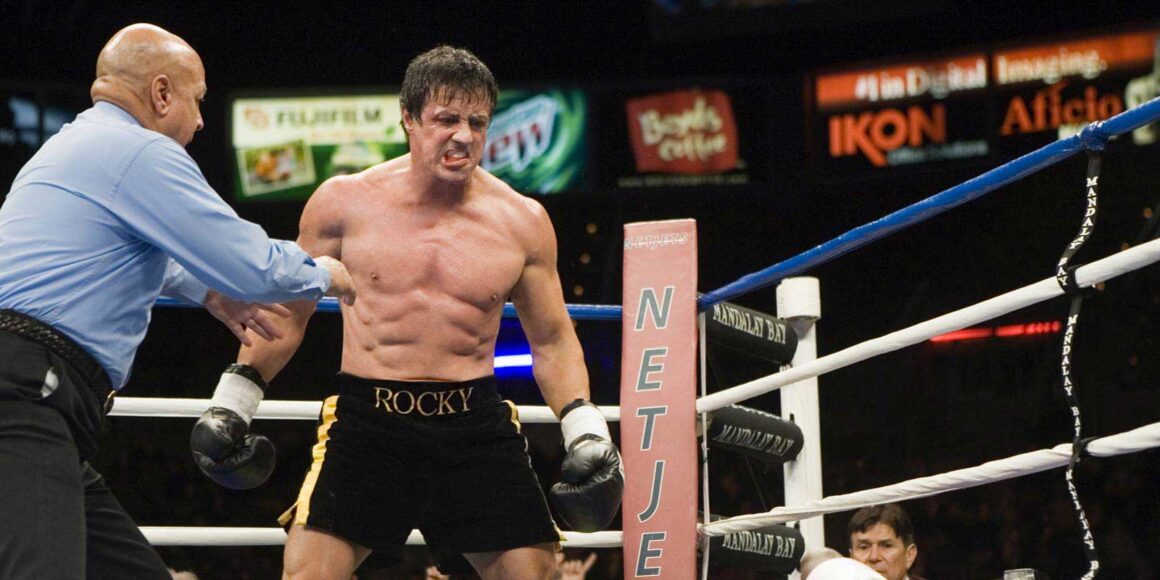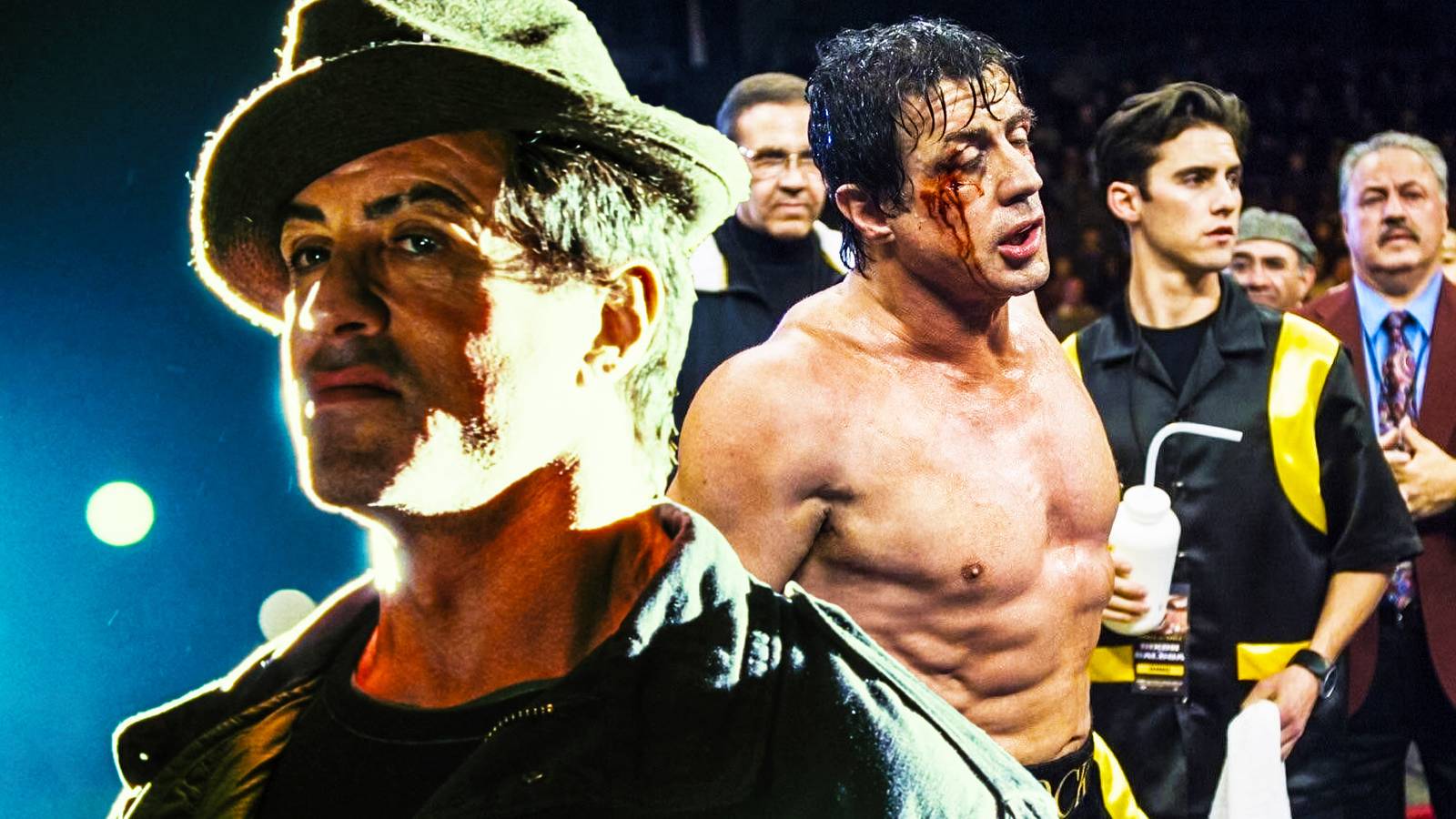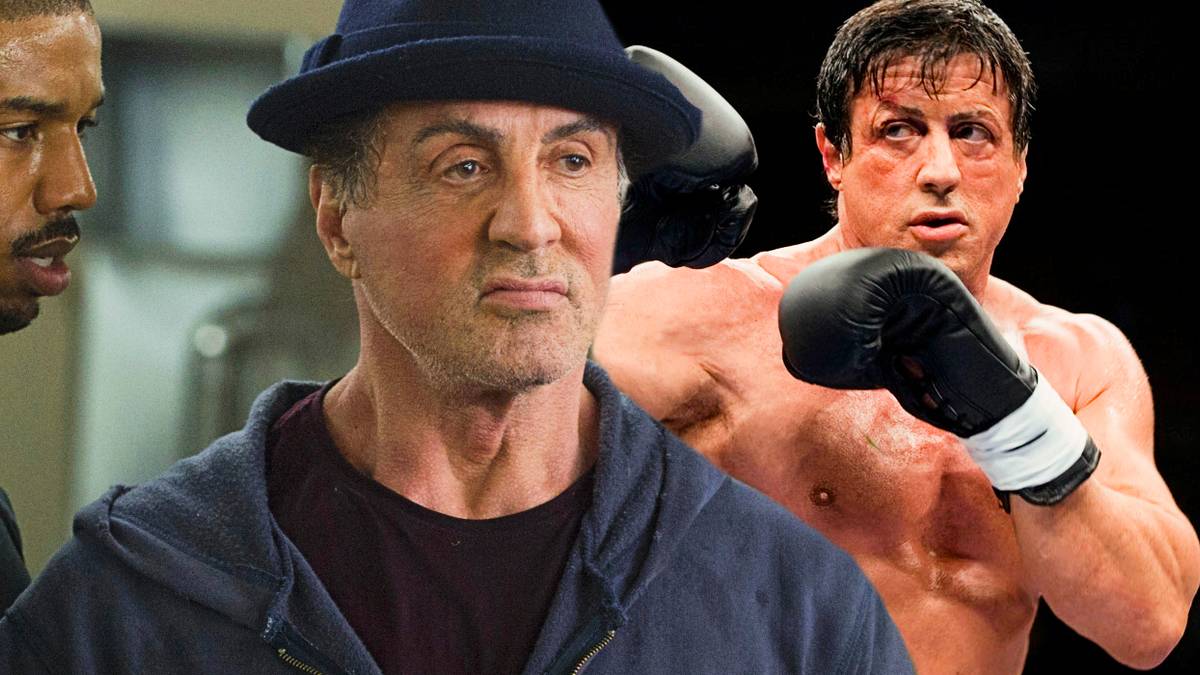Rocky Balboa (2006), written and directed by Sylvester Stallone, is both a heartfelt comeback and a fitting conclusion to one of cinema’s most beloved underdog stories. After a 16-year hiatus, Stallone returns as the iconic Rocky Balboa, now older, wiser, and facing the realities of time, loss, and legacy.

The film opens years after the events of Rocky V. The once-great heavyweight champion, now in his late 50s, lives a quiet, humble life in Philadelphia. Rocky runs a small Italian restaurant called Adrian’s, named in honor of his late wife, Adrian, who has passed away from cancer. Her absence weighs heavily on him; he visits her grave often and reminisces about their life together. His son, Robert Balboa Jr. (Milo Ventimiglia), works a corporate job but struggles to connect with his famous father, feeling overshadowed by his legacy.

Meanwhile, the boxing world has moved on. The current heavyweight champion, Mason “The Line” Dixon (Antonio Tarver), is a technically skilled fighter but lacks the heart and respect of fans who admire the passion of past champions like Rocky. When a televised computer simulation predicts that Rocky, in his prime, would have defeated Dixon, it sparks public curiosity—and inspires Rocky himself.

Despite his age, Rocky feels a lingering emptiness and decides to fight again, not out of pride, but to “fill a gap” left in his soul. Against the advice of his son and friends, he applies for a boxing license and begins training with his old coach Duke (Tony Burton), embracing the physical and emotional pain of preparation.

Promoters arrange a high-profile exhibition match between the aging legend and the reigning champion. Many mock the idea, but Rocky approaches it with humility and determination, knowing he has nothing left to prove—only something left to give.

The climactic fight in Las Vegas is brutal and inspirational. Rocky, battered and bloodied, refuses to give up, embodying the same fighting spirit that defined him decades earlier. Though Dixon wins by a narrow split decision, Rocky earns the respect of everyone—including his opponent—and walks away proud.

In the film’s closing moments, Rocky visits Adrian’s grave once more and quietly says, “Yo, Adrian, we did it.”
![]()
Rocky Balboa is a powerful reflection on aging, perseverance, and the courage to keep moving forward. More than a sports movie, it’s a meditation on loss, legacy, and the unbreakable spirit of a man who refuses to quit—reminding audiences that champions aren’t measured by victory, but by heart.



